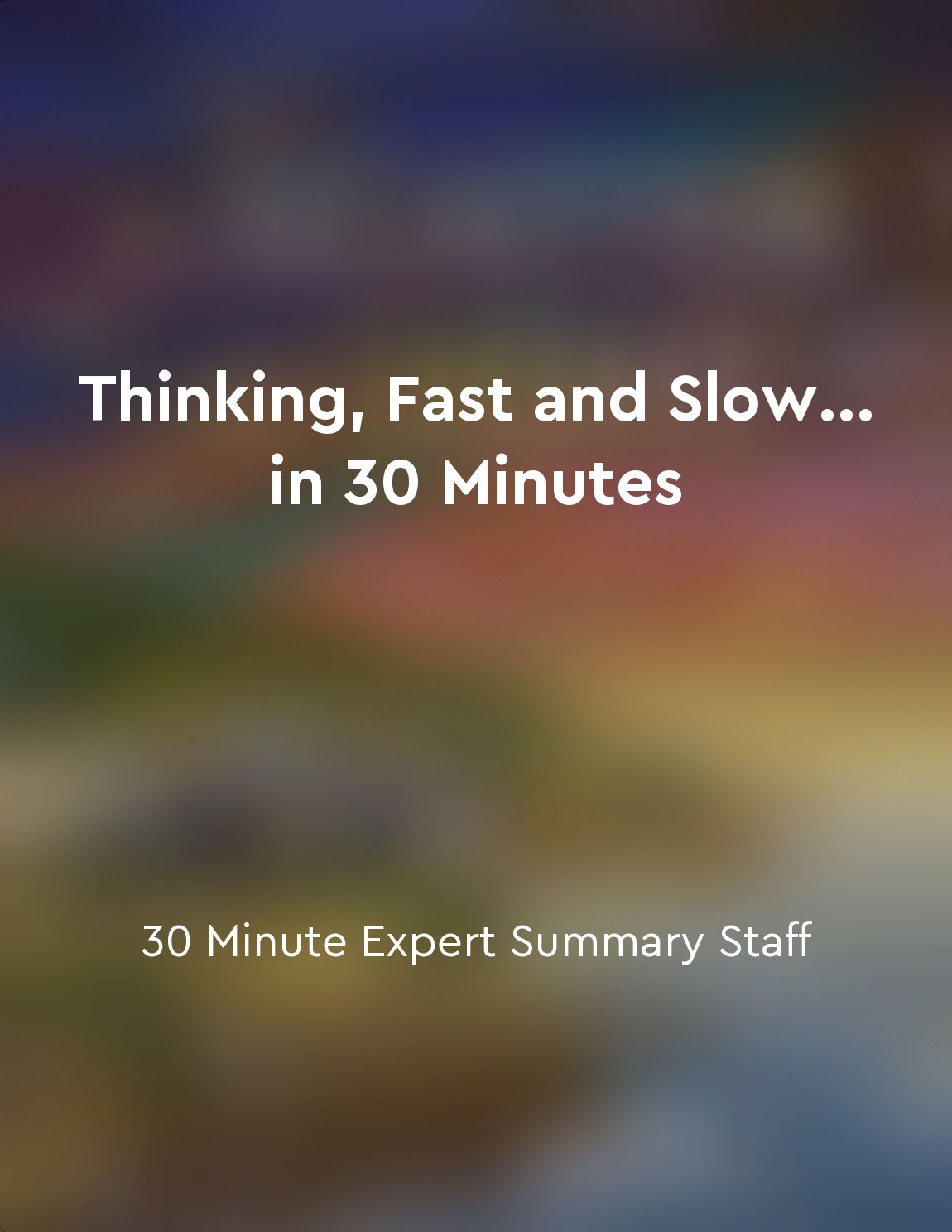Audio available in app
Emotions impact decisionmaking from "summary" of Thinking, Fast and Slow... in 30 Minutes by 30 Minute Expert Summary Staff
One important idea explored in "Thinking, Fast and Slow" is that emotions play a significant role in the decision-making process. Emotions can impact our decisions more than we realize, often guiding us towards certain choices without us even being aware of it. This is because our fast, intuitive thinking system - known as System 1 - is heavily influenced by emotions, leading us to make quick judgments based on how we feel in the moment. When we are faced with a decision, our emotions can color our perceptions and evaluations of the options available to us. For example, if we are feeling happy, we are more likely to see the positives in a situation and make a decision based on the positive emotions we are experiencing. On the other hand, if we are feeling anxious or fearful, we may focus more on the negatives and make a decision based on avoiding potential risks or losses. Emotions can also impact our decision-making by influencing the way we process information. When we are experiencing strong emotions, our cognitive abilities can be impaired, making it more difficult for us to think rationally and consider all aspects of a decision. This can lead us to rely on heuristics or mental shortcuts, which may not always result in the most optimal choice. Furthermore, certain emotions can lead us to take more risks or be more impulsive in our decision-making. For example, feeling overconfident can cause us to underestimate risks and make choices that we may later regret. On the other hand, feeling fearful can lead us to avoid taking any risks, even if the potential benefits outweigh the potential costs.- Understanding how emotions impact decision-making is crucial for making more informed and rational choices. By being aware of how our emotions can influence our decisions, we can strive to take a step back, consider our options more objectively, and ultimately make choices that align with our long-term goals and values.


